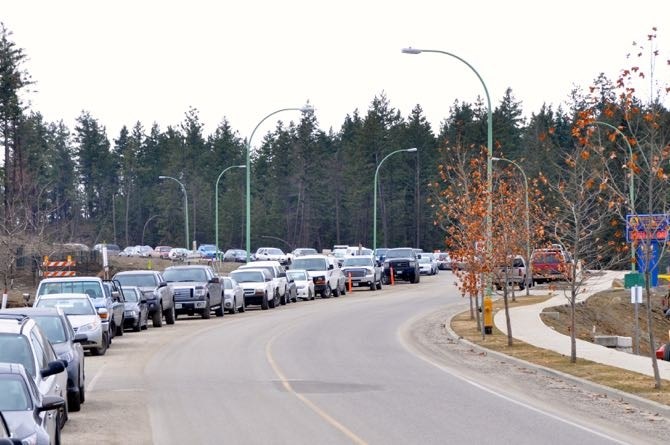
A 251-unit micro suite development is planned for this site on Academy Way near UBC Okanagan.
(JOHN MCDONALD / iNFOnews.ca)
March 05, 2015 - 1:31 PM
KELOWNA - Micro suites may be a trend that gains no traction in Kelowna, but if it does the city is looking at ways to replace the revenue lost to their exemption by the province from development cost charges.
“If we see 400 suites next year and 400 the year after that, then we might have to get creative replacing that revenue,” said Ryan Smith, the city’s director of planning.
Three micro suite developments totalling 320 rental units are in various stages of approval within Kelowna while another smaller project near the Pandosy town centre is set to come before council soon. Based on the city's fee schedule for units less than 56 square metres, the city will give up just over $2 million in cash that would normally have been spent on roads, parks and water and sewage treatment.
Those projects are the first in Kelowna, although the trend to so-called shoebox suites, defined as anything less than 29 square metres, has so far been most prevalent in larger cities like Vancouver and Toronto where sky high rents and low vacancy rates have created a demand for cheaper alternatives.
Despite that, Smith said there’s no real evidence of huge demand in the city.
“This could be a blip in the radar. We could end up with more of them or they could die off completely,” he added.
Micro suites were shielded from development cost charges several years ago, an exemption the province enshrined in the Local Government Act. Development cost charges are fees charged to developers for major infrastructure such as roads and sewers and based on the density and scope of the development.
“In that sense our hands are tied,” Smith said, although he added there are options to recoup some lost revenue through what he called “amenity contributions.”
“These are not cash payments. Rather than pay the DCCs, the developer would make a contribution for parks or provide some extra open space for residents,” Smith added.
Micro suite projects tend to be infill developments, located in established areas where major infrastructure is already in place. Carriage houses, for example, are granted a reduced DCC on the basis of their location within existing neighbour hoods. But Smith said infill development can still add pressure to existing roads and sewers and can require significant upgrades.
Smith and planning staff will be looking at micro suite policies in other cities and how the lost revenue can be recouped. The plan is to report back to council with options, likely by next fall.
To contact the reporter for this story, email John McDonald at jmcdonald@infotelnews.ca or call 250-808-0143. To contact the editor, email mjones@infotelnews.ca or call 250-718-2724.
News from © iNFOnews, 2015